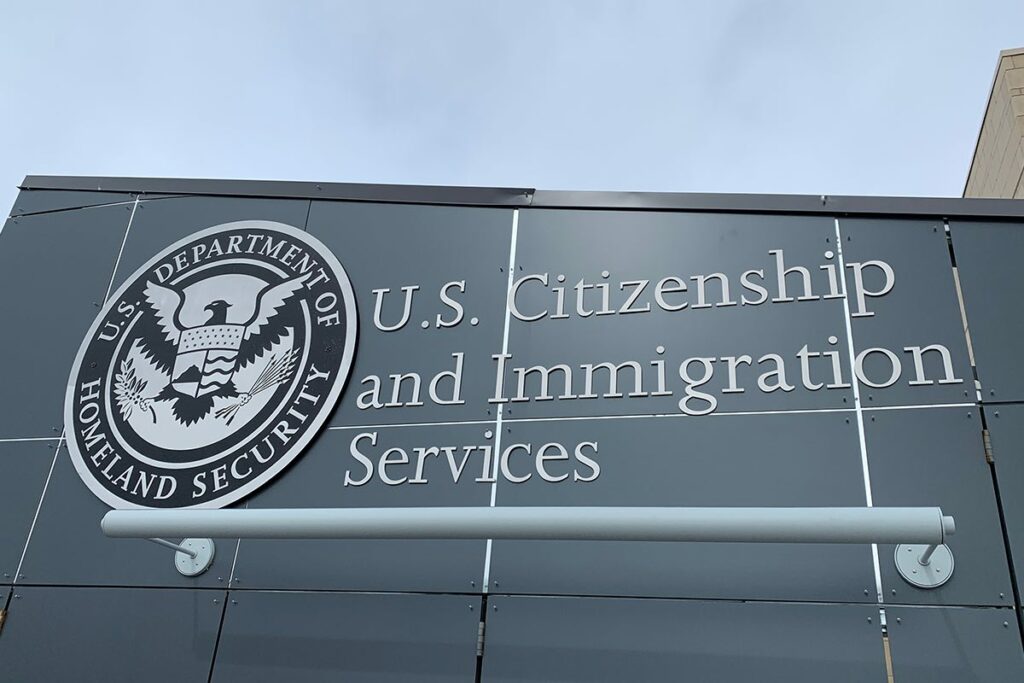
USCIS deadlines lose flexibility with the end of the pandemic
US Citizenship and Immigration Services announced that the previous COVID-19 flexibilities that began at the start of the pandemic in March 2020 have now ended. This includes Requests for Evidence (RFE) and Notices of Intent to Deny (NOID).
The end of the facilities implemented during the pandemic, according to experts, is something that was already seen coming, especially since the global emergency officially ended.
Proof of this is what Dennis Tristani, of Tristani Law LLC, states, for example: “The end of the pandemic-related extensions of time was something that lawyers and their clients had been waiting for some time.” In addition, he acknowledged that “the additional time was particularly helpful for notices of intent to deny based on difficult projects or funding sources that have very short response times.”
With the extension previously announced in January 2023, the entity reported that it would be the last resolution to extend the terms. In the most recent announcement, it was reported that USCIS notices or requests dated after March 23, 2023 must now be responded to within the time frames indicated for the following procedures:
Evidence requests; Continuations to the Request for Evidence (N-14); Notices of intent to deny; Notices of Intent to Revoke; Notices of Intent to Terminate; Notices of Intent to Terminate regional centers; Notices of Intent to Withdraw Temporary Protected Status; and Motions to reopen an N-400 pursuant to 8 CFR 335.5, Receipt of derogatory information after grant. Previously the term was 60 days.
The agency said it can provide certain flexibilities for applicants and petitioners on a case-by-case basis only for emergencies or unforeseen circumstances, such as natural disasters, national emergencies, or serious illnesses, including COVID.
Consequences of the pandemic for EB-5
Like much of the world that shut down, in March 2020, USCIS closed offices across the country, canceled visa appointments, and US embassies and consulates abroad suspended routine visa services.
The effects of the pandemic coupled with the June 2021 lapse of the EB-5 Regional Center program, when its congressional authorization expired, were greatly felt in the EB-5 industry. Massive disruptions in consular processing of EB-5 immigrant visas abroad were the norm.
“There are still some US embassies with “Covid-related” delays three years after the pandemic began,” Tristani said. “Some consulates have stopped processing certain visa cases altogether, prompting foreign citizens to file mandamus lawsuits to force the US Department of State to reopen visa divisions and move cases forward.”
Tristani further commented that the economic fallout from the pandemic caused some EB-5 projects to hit financial hard times, which in turn caused some investors to deal with significant delays in paying down principal on their EB-5 investment.
However, with the passage of the EB-5 Integrity and Reform Act of 2022, USCIS has resumed processing Regional Center-based I-526 petitions and most US consulates have resumed processing. issuance of immigrant visas.
Investing in BAI Capital is investing in the United States
With a presence in the real estate sector in the states of Florida, Texas and New York, BAI Capital specializes in generating value from the acquisition of land to the development of mixed-use projects, such as residences for the elderly, student residences, multifamily buildings. for rentals and mixed use, including condos and retail.
Our mission is to safeguard the capital of the partners and the own capital under the minimum risk exposure. With a safe development and going through all the stages: Land purchase, adjustment of urban zoning, commercial vision in architectural development and management of building permits. Then, we take charge of the capitalization, construction and exit with return of the capital and profits to the partners.
In this way, we guarantee fixed and stable returns for your client portfolio. In addition to having a confidential work protocol with encrypted web forms. Use of protected personal data and private meetings with our agents throughout Latin America.
You already knew 4 reasons to invest in real estate in the United States this 2023. If you are looking to protect your capital from inflation through investments with returns in dollars, or invest in projects that qualify for the EB-5 investor visa to get a Green Card, complete our form and an agent will contact you.
